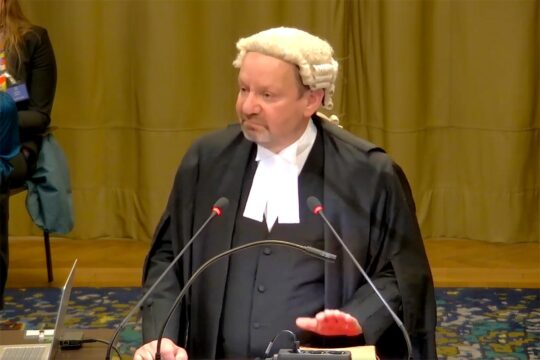The Associated Press called into question on Friday the rationale behind Israeli strikes on a Gaza hospital last month which killed one of its contributors and four other Palestinian journalists.
Consecutive Israeli strikes on Nasser Hospital in Khan Yunis on August 25 killed 22 people, including five journalists, according to local authorities.
Following the deadly incident, the Israeli military said it was carrying out an "initial inquiry", and a day after, said its forces had been targeting a camera operated by Hamas.
But on Friday, the Associated Press said its own reporting on the attack raised "serious questions about Israel's rationale for the strikes and the way they were carried out."
AP said that the top of the building struck by the Israeli military was "well known as a journalists' gathering point" and that witnesses described Israel "frequently" observing the area by drone, "including about 40 minutes before the attack".
The news agency quoted a military official as saying a rooftop camera was believed to be used by Hamas due to "suspicious behaviour".
It said the only detail given was the fact there was a towel over the camera and the operator -- which it interpreted as an attempt to avoid identification.
AP reported that the camera in fact belonged to video journalist Hussam al-Masri -- who worked with Reuters news agency and who "routinely covered his equipment with a white cloth to protect it from the scorching sun and dust".
AP said al-Masri, who was killed in the first strike on the hospital, regularly recorded livestreams from the location and should have been identified by the Israeli drone that flew over just before the strike.
The US news agency also reported that "there has been no evidence of a second camera at the site where al-Masri was killed".
- 'Troubling decisions' -
On Friday, it said it had uncovered other "troubling decisions" by Israel regarding the late August strikes.
"Soon after the first strike, Israeli forces hit the same position again, after medical and emergency workers had reached the scene to treat the injured, and as journalists... had rushed to cover the news," it said.
AP said this exposed Israel to accusations of a "double-tap" strike -- a widely condemned practice aimed at maximising casualties and which may constitute a war crime.
AP said its findings revealed the army had used "high-explosive tank shells" to strike the hospital.
"In all, Israel struck the hospital four times, the AP found, each time without warning," the news agency said.
Mariam Dagga, who worked for AP and other news organisations, was killed in the attack.
Contacted by AFP about the AP article, the Israeli military referred to its statement from the day after the strikes, in which it said the chief of the general staff had "instructed to further examine several gaps" including "the ammunition approved for the strike" and the "decision making process in the field".


